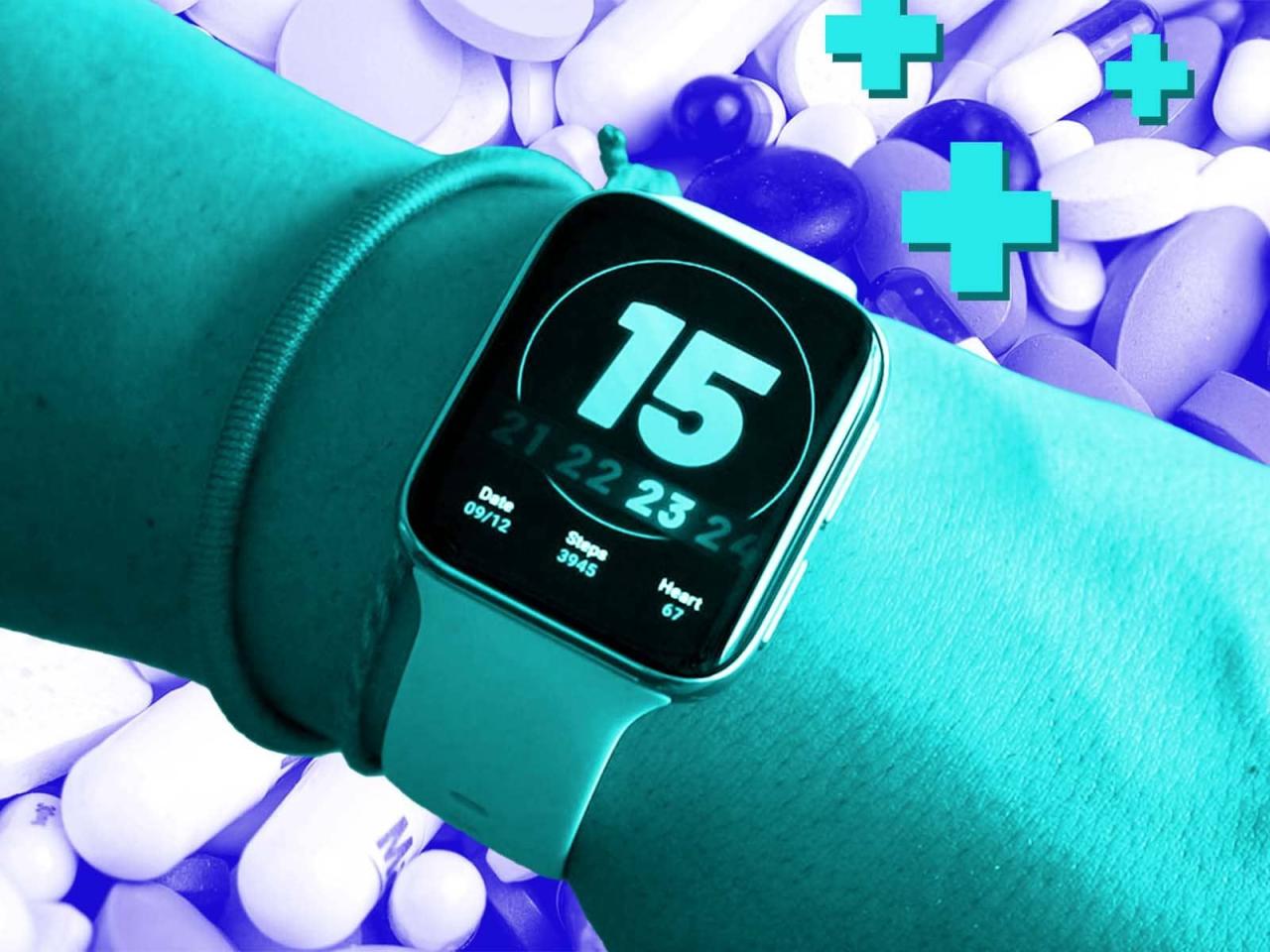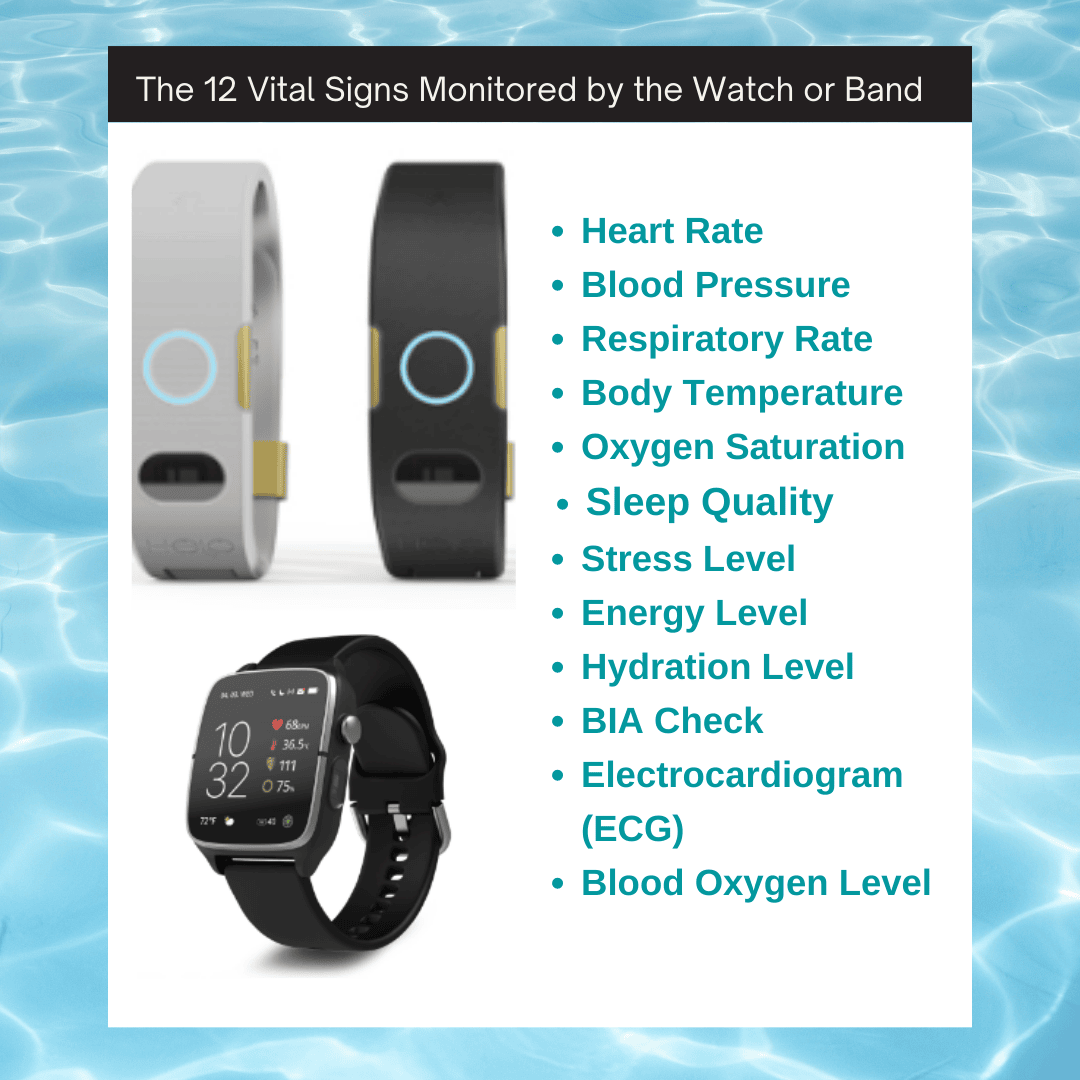Best Wearable Devices for Tracking Health Metrics: A Comprehensive Guide

Dive into the world of wearable devices designed to track health metrics, providing users with valuable insights into their personal well-being and fitness levels. From smartwatches to fitness trackers, each device offers unique features to help individuals monitor key health indicators effortlessly.
Let's explore the realm of wearable technology and how it can revolutionize the way we approach health tracking.
Types of Wearable Health Devices

Wearable health devices have become increasingly popular for tracking various health metrics and promoting a healthy lifestyle. These devices come in different forms, each offering unique functionalities and features to cater to different user needs.
Smartwatches
Smartwatches are versatile wearable devices that not only tell time but also offer a range of health tracking features. They can monitor heart rate, track physical activities, count steps, analyze sleep patterns, and even provide reminders to move or stay active throughout the day.
Some smartwatches also have built-in GPS for tracking outdoor activities like running or cycling. One of the main advantages of smartwatches is their multi-functionality, allowing users to access notifications, make calls, and even use apps on their wrists. However, they tend to be more expensive compared to other wearable devices and may have limited battery life.
Fitness Trackers
Fitness trackers are dedicated devices designed specifically for monitoring physical activities and health metrics. They focus on tracking steps taken, calories burned, distance traveled, and active minutes. Some fitness trackers also feature heart rate monitoring and sleep tracking functionalities. Fitness trackers are typically more affordable than smartwatches and offer long battery life.
They are lightweight and comfortable to wear, making them ideal for everyday use. However, fitness trackers may lack some of the advanced features found in smartwatches, such as GPS or the ability to receive notifications.
Other Wearable Devices
In addition to smartwatches and fitness trackers, there are other types of wearable health devices available in the market. These include smart clothing, smart glasses, and wearable patches that can monitor various health metrics like heart rate, temperature, and even hydration levels.
Smart clothing, for example, can track biometric data and provide insights into performance during physical activities. Wearable patches are discreet and convenient for continuous monitoring of specific health parameters. While these devices offer unique functionalities, they may not be as mainstream or widely adopted as smartwatches and fitness trackers.
Essential Health Metrics Tracked

Wearable devices offer the ability to track a variety of essential health metrics that can provide valuable insights into one's overall well-being. By monitoring these metrics, individuals can take proactive steps towards improving their health and achieving their fitness goals.
Key Health Metrics
- Heart Rate: Wearable devices can continuously monitor heart rate throughout the day, providing insights into cardiovascular health and exercise intensity.
- Steps Taken: Tracking daily steps can help individuals stay active and meet recommended physical activity goals.
- Sleep Patterns: Monitoring sleep patterns, including duration and quality, can help optimize rest and recovery.
- Calories Burned: Understanding calorie expenditure can assist in weight management and achieving fitness targets.
- Activity Levels: Tracking overall activity levels can encourage individuals to move more throughout the day.
Importance of Monitoring
Monitoring these health metrics is crucial for gaining a comprehensive understanding of one's health and fitness status. By tracking these metrics regularly, individuals can identify patterns, set achievable goals, and make informed decisions to improve their overall well-being.
Benefits of Tracking
Tracking these health metrics can empower users to make lifestyle adjustments based on data-driven insights. For example, noticing a decrease in daily steps taken may prompt an individual to increase physical activity, while observing poor sleep quality can encourage prioritizing rest and relaxation
Ultimately, monitoring these metrics can lead to healthier habits and improved overall health outcomes.
Accuracy and Reliability

Accuracy and reliability are crucial factors when it comes to wearable health devices for tracking health metrics. Users rely on these devices to provide them with precise data that they can use to make informed decisions about their health and wellness.
Technologies for Precise Tracking
Wearable health devices utilize advanced technologies to ensure accurate tracking of health data. Some common technologies used include:
- Optical heart rate monitors: These sensors use light to measure blood flow through the skin and accurately track heart rate.
- Accelerometers: These sensors measure movement and can track physical activity levels, steps taken, and even sleep patterns.
- Gyroscope sensors: These sensors help track orientation, rotation, and angular velocity, providing insights into posture and balance.
Verifying Accuracy of Health Metrics
To verify the accuracy of the health metrics provided by wearable devices, users can take the following steps:
- Compare data with other devices: Cross-referencing data with other reliable sources can help identify any discrepancies.
- Calibrate the device: Following the manufacturer's instructions for calibration can improve the accuracy of the device.
- Consult healthcare professionals: If there are concerns about the accuracy of the data, it's best to consult with a healthcare provider for guidance.
Integration with Health Apps and Platforms
Wearable devices integrating with health apps and platforms play a crucial role in comprehensive health tracking. This integration allows for seamless syncing of data collected by wearables, providing users with a centralized platform to monitor and analyze their health metrics effectively.
Syncing Data for Comprehensive Tracking
- Wearable devices collect a wide range of health metrics such as heart rate, sleep patterns, activity levels, and more.
- By syncing this data with health apps, users can have a holistic view of their health status over time.
- Integration with platforms like Apple Health or Google Fit enables users to track their progress, set goals, and make informed decisions based on collected data.
Benefits of Centralized Monitoring
- Having all health metrics in one place simplifies the tracking process and provides a comprehensive overview of one's health journey.
- Users can easily share their data with healthcare providers for better-informed consultations and personalized recommendations.
- Centralized platforms often offer insights and trends analysis, helping users identify patterns and make adjustments to improve their overall well-being.
Last Word
In conclusion, the array of wearable devices available for tracking health metrics opens up a world of possibilities for users seeking to enhance their well-being. By harnessing the power of technology, individuals can take control of their health and make informed decisions to lead healthier lives.
Embrace the future of health monitoring with these innovative devices at your fingertips.
FAQs
How accurate are wearable devices in tracking health metrics?
Wearable devices use advanced sensors to track health metrics accurately, providing users with reliable data to monitor their well-being effectively.
Can wearable devices sync data with multiple health apps?
Yes, many wearable devices offer seamless integration with various health apps, allowing users to consolidate their health data for a more comprehensive tracking experience.
What are some key health metrics that wearable devices can track?
Common health metrics include heart rate, steps taken, calories burned, sleep patterns, and even stress levels, offering a holistic view of one's health and fitness.




